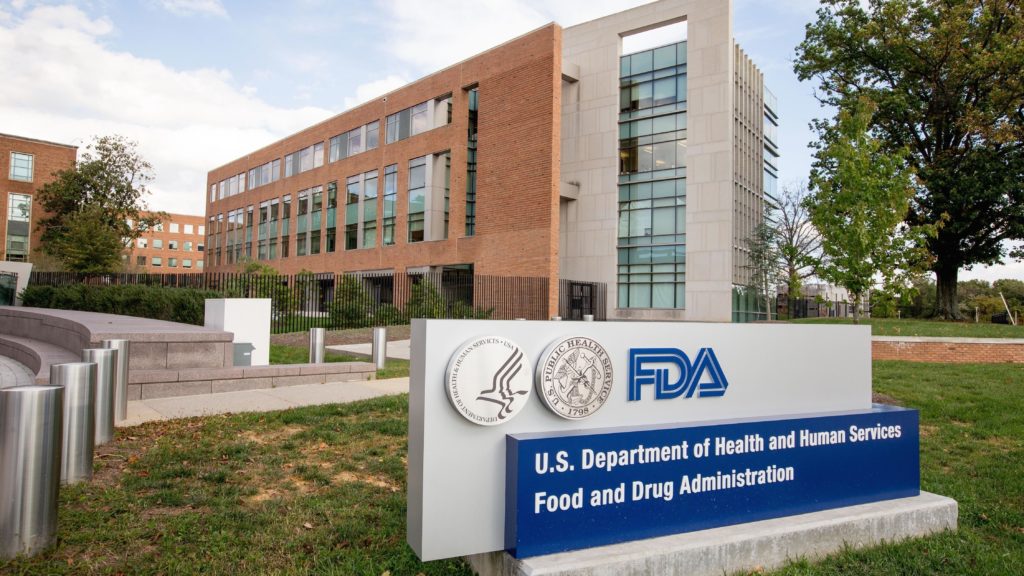Want to stay on top of the science and politics driving biotech today? Sign up to get our biotech newsletter in your inbox.
Good morning, all. Damian here with disappointing news on a closely watched gene therapy, an interesting deal in genome editing, and the long shadow of biotech’s slump.
advertisement
The need-to-know this morning
• Shares of Sarepta Therapeutics are down 40% in pre-market trading, following disappointing results from a confirmatory study of its gene therapy for Duchenne muscular dystrophy announced late yesterday.
• Amgen reported third-quarter adjusted earnings of $4.96 per share, better than the analyst consensus. Revenue rose 4% year over year to $6.9 billion, in-line with consensus. The company slightly raised its earnings and revenue guidance for the remainder of the year.
• Pfizer posted a third-quarter adjusted loss of 17 cents per share, impacted by $5.6 billion non-cash inventory write-offs and other charges. Analysts, on average, were expecting a net loss of 8 cents per share. Revenue fell 42% year over year to $13.2 billion on the previously announced decline in Covid product sales. Excluding Covid sales, “operational revenue” grew 10%.
• A group of FDA advisers will spend today debating the merits of the first CRISPR medicine up for U.S. approval, a treatment for sickle cell disease from Vertex Pharmaceuticals and CRISPR Therapeutics. Follow STAT’s live coverage.
Sarepta’s disappointing data put the FDA in a difficult spot
Sarepta Therapeutics’ gene therapy for Duchenne muscular dystrophy missed its primary goal in a pivotal study, but the company still intends to push for a broader FDA approval, saddling regulators with a difficult decision.
As STAT’s Jason Mast and Adam Feuerstein report, Sarepta’s treatment was numerically superior to placebo on a key measure of patients’ function, but the difference did not meet the threshold of statistical significance. The study’s secondary endpoints, including the time it takes patients to stand up and how long it takes them to walk 10 meters, also favored Sarepta’s treatment, the company said.
advertisement
Whether that’s enough evidence to merit full approval will soon be up to the FDA. The agency granted the gene therapy accelerated approval earlier this year, following an internal debate in which an influential FDA leader overruled the concerns of staff. A clear benefit in the pivotal study would have vindicated that decision. Sarepta’s disappointing results are sure to stir further debate.
Lilly is serious about CRISPR
Eli Lilly is paying $200 million for a bigger stake in the future of Verve Therapeutics, a company using CRISPR to treat cardiovascular disease, buying the rights to a pair of early-stage medicines.
As STAT’s Matthew Herper reports, the deal is a little complicated. Lilly is transacting with Beam Therapeutics, another genome-editing company, for its rights to the Verve treatments. For Beam, which recently laid off about 20% of its workforce to save money, the agreement provides an infusion of needed cash and up to $350 million more if the medicines pan out. Lilly, which already partnered with Verve on another genome-editing approach to cardiovascular disease, deepens its work in CRISPR. And Verve gets to partner with the most venerated drug developer in the industry.
“This is like a true win-win-win deal, which is rare in this business, but it’s really really exciting to see,” said John Evans, Beam’s CEO, in an interview with STAT.
The problem with Cassava’s Alzheimer’s data
At the tail end of last week’s big Alzheimer’s disease conference, Cassava Sciences, the volatile meme stock, pulled back the curtain on the data supporting its much-discussed experimental medicine. STAT’s Adam Feuerstein was in the audience, and he saw some issues.
Chief among them is Cassava’s enrollment criteria, Adam writes. The company recruited patients with a wide range of dementia scores, including those with numbers so low they wouldn’t qualify as even having Alzheimer’s in other studies. Then there was the striking imbalance in baseline scores between patients on placebo and those who received treatment, which calls into question the negligible benefit observed at the end of the study.
The presentation comes weeks after an independent investigation found evidence “highly suggestive of deliberate scientific misconduct” in the development of Cassava’s drug. And to Adam, it gives the FDA “more cause to halt Cassava’s two, ongoing Phase 3 studies and require the company to conduct a futility analysis” of the drug.
Even diversified companies are feeling the biotech pinch
Revvity, the life sciences conglomerate formerly known as PerkinElmer, was supposed to be insulated from all this. Earlier this year, the company pivoted to a heavy focus on diagnostics, in part to escape the volatile world of selling tools and supplies to biotech firms with dwindling cash reserves.
And yet, Revvity’s shares fell about 16% yesterday after the company missed Wall Street’s sales expectations and slashed its projections for both revenue and profit. The problem, executives said, was decreasing demand for its services from the drugmakers it once counted on.
It has become a familiar story among companies that count on the drug industry for their revenue. Thermo Fisher Scientific, a maker of lab tools, lost about $15 billion in value last week after cutting its profit forecast for the second time in 2023. Lonza, a contract manufacturer, abruptly replaced its CEO without explanation last month, seeding fears that its business was in a similar decline.
More reads
• How skeptical should you be of an after-the-fact subgroup analysis in a failed clinical trial? STAT
• 23andMe will give GSK access to consumer DNA data, Bloomberg
• In Gaza, the Glia Project 3D prints tourniquets and stethoscopes, STAT
• Reviva Pharma’s schizophrenia drug succeeds in late-stage study, Reuters

